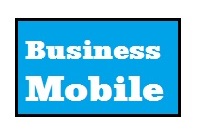From today We’re pleased to say that we will be running stories from the Guardian as well as content from our own writers. And this is the first.
Apple is opening up its iTunes App Store – from which people can download apps for the iPhone, iPad and iPod Touch – so that developers can write programs for it without using Apple’s own software.
It also says that it is publishing the guidelines used to review apps before they are approved for the store, which should ease a bone of contention with developers who have been frustrated by the opaque nature of the reviewing system.
The move to open the store to software written using non-Apple products will forestall the threat of an anti-trust investigation which had looked possible after Apple blocked apps written using Adobe software tools. The two companies have been engaged in a tussle for months over Apple’s refusal to incorporate Adobe’s Flash software, used on many desktop computers, on the iPhone, iPad and iPod Touch – collectively known as “iOS devices”.
In a statement, Apple said: “We have listened to our developers and taken much of their feedback to heart. Based on their input, today we are making some important changes to our iOS Developer Program license in sections 3.3.1, 3.3.2 and 3.3.9 to relax some restrictions we put in place earlier this year.”
Those clauses, altered in April, had effectively banned any app that was not written with Apple’s own iOS development tools, even if they produced computer code which would run on iOS devices. The effect was most marked on Adobe, which had made a significant investment to the latest release of its Creative Suite applications so that they could generate iOS-compatible apps from Flash apps built with the suite.
Now, Apple is stepping back from that ban: “In particular, we are relaxing all restrictions on the development tools used to create iOS apps, as long as the resulting apps do not download any code. This should give developers the flexibility they want, while preserving the security we need.”
In April, Steve Jobs published an open letter to Adobe entitled “Thoughts on Flash“, which was critical of Flash’s performance, security, reliability and usability on a touchscreen device.
While Jobs has not retreated on Flash, Apple has clearly decided that the threat of antitrust suit – and the similtaneous threat from Google’s Android platform, which powers a growing number of phones that can run Flash – makes it more attractive to allow such “cross-compiled” apps than to try to ban them.
The newly-published guidelines – theoretically only available to iOS developers – begins with a number of general points, such as that “if you want to criticize a religion, [don’t write an app,] write a book. If you want to describe sex, write a book or a song, or create a medical app. It can get complicated, but we have decided to not allow certain kinds of content in the App Store.”
It also points out that “we don’t need any more Fart apps. If your app doesn’t do something useful or provide some form of lasting entertainment, it may not be accepted.” Other reasons for rejection would include amateurish efforts and “content or behaviour that we believe is over the line. What line, you ask? Well, as a Supreme Court Justice once said, “I’ll know it when I see it.” And we think that you will also know it when you cross it.”
There is also a warning: “If your app is rejected, we have a Review Board that you can appeal to. If you run to the press and trash us, it never helps.”
The warning on “pornography” – which Jobs has said before he does not want on the store – is explicit: “Apps containing pornographic material, defined by Webster’s Dictionary as ‘explicit descriptions or displays of sexual organs or activities intended to stimulate erotic rather than aesthetic or emotional feelings’, will be rejected.” And it notes that “Apps that contain user-generated content that is frequently pornographic (example ‘Chat Roulette’ apps) will be rejected”.
Yet some developers have found in the past that press embarrassment has seemed like the only way to put pressure on Apple. The document does not promise any timeline for reviews – which has been another bugbear for developers, who have sometimes seen apps sidelined for weeks without any timescale for review.
The move will probably strengthen Apple’s position in the App Store market, where it is battling against Google Marketplace, as well as BlackBerry maker RIM and Nokia, which has its own Ovi store. The most significant threat there is Google, but today’s move is a plus for developers who will now be able to develop for the App Store without concern about their development methods.
Apple noted: “With over 250,000 apps and 6.5 billion downloads, the App Store has become the world’s largest mobile application platform and App Store developers have earned over one billion dollars from the sales of their apps.”
guardian.co.uk © Guardian News & Media Limited 2010
Published via the Guardian News Feed plugin for WordPress.

While we’re on the topic of Apple opens App Store to programs written in Adobe Flash – and more | Business Mobile, Flash CMS templates is the best and most advanced solution for managing your flash website easily and in the real time. CMS states for content management system which means that the templates within this category come with the admin interface allowing to edit the elements of the flash templates directly from the admin area. The list of features in the CMS systems differs considerably so you should be careful and study the list of features included with the template package attentively before making the purchase.